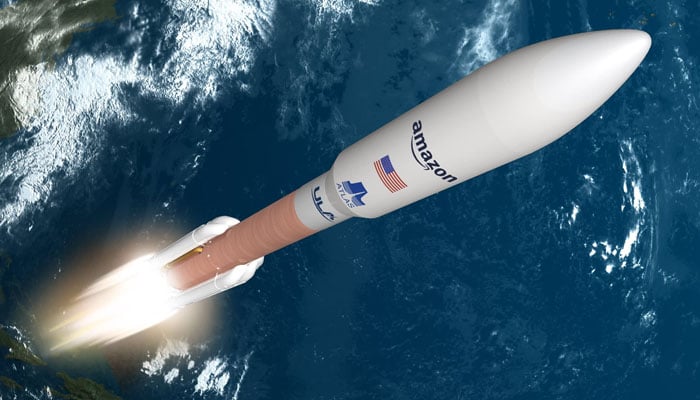Challenge to Elon Musk: Amazon set to lauch first Kuiper internet satellite
Musk´s SpaceX launched the first batch of its more than 3,700 operational Starlink satellites in 2019 and is by far the biggest player
Amazon is scheduled to launch Project Kuiper's two satellites on Friday in its first test mission, as part of its plan to deliver the internet from space and compete with Elon Musk's Starlink service.
The launch window for the Atlas V rocket from the United Launch Alliance (ULA) hub at Kennedy Space Center in Florida is scheduled to open for two hours at 2:00 pm local time (1800 GMT).
Once up and running, the company founded by Jeff Bezos says its Project Kuiper will provide "fast, affordable broadband to unserved and underserved communities around the world," with a constellation of more than 3,200 satellites in low Earth orbit (LEO).
"This is Amazon´s first time putting satellites into space, and we´re going to learn an incredible amount regardless of how the mission unfolds," said Rajeev Badyal, Project Kuiper´s vice president of technology.
The first operational satellites of the Kuiper project are due to be launched in early 2024, according to Amazon, which hopes for initial tests with customers at the end of next year.
The test on Friday will attempt to make contact with probes from Earth, deploy their solar panels, and confirm that all instruments are operating correctly and at the desired temperatures.
The two prototypes will be removed from orbit and disintegrated in the Earth´s atmosphere at the end of the test mission.
Musk´s SpaceX launched the first batch of its more than 3,700 operational Starlink satellites in 2019 and is by far the biggest player. London-headquartered OneWeb is another early entrant in the emerging sector.
These services are designed to provide internet access to even the most remote and underserved areas around the world, including war zones or disaster-struck areas.
Musk´s ownership of Starlink caused uproar in Ukraine last month when it was revealed that he refused to turn on the service for a planned attack by Kyiv forces on Russia´s Black Sea navy fleet last year.
Given the technology´s strategic importance, governments are also keen to join the rush into the sector.
China plans to launch 13,000 satellites as part of its GuoWang constellation, while Canada´s Telesat will add 300 and German start-up Rivada is eyeing 600.
That will be in addition to the European Union´s Iris project — 170 satellites — and the 300-500 satellites planned to be launched by the US military´s Space Development Agency.
-
Scientists discover rare form of 'magnets' that might surprise you
-
Humans may have 33 senses, not 5: New study challenges long-held science
-
Northern Lights: Calm conditions persist amid low space weather activity
-
SpaceX pivots from Mars plans to prioritize 2027 Moon landing
-
Dutch seismologist hints at 'surprise’ quake in coming days
-
SpaceX cleared for NASA Crew-12 launch after Falcon 9 review
-
Is dark matter real? New theory proposes it could be gravity behaving strangely
-
Shanghai Fusion ‘Artificial Sun’ achieves groundbreaking results with plasma control record












